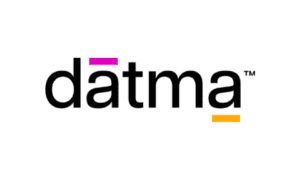Welcome to the age of apps, where convenience is just a tap away. From managing our finances to ordering food to even finding love, there seems to be an app for everything these days. But have you ever stopped to ponder whether this technological revolution is truly unlocking convenience or if it’s simply compromising our lives instead? In this blog post, we will dive deep into the world of apps and explore their pros and cons, shedding light on how they have transformed our daily routines for better or worse.
Introduction: What apps are and why they are popular
Apps are computer programs designed to make life more convenient. They are usually available for download on smartphones and tablets and can be used for a variety of purposes, such as ordering food, booking travel, or managing finances.
While apps can be extremely helpful, they also have the potential to compromise user privacy. For example, many apps collect data about users’ habits and preferences to sell targeted ads. In some cases, this data may be shared with third-party companies without the user’s knowledge or consent.
It is important to be aware of the pros and cons of using apps before downloading them. This will help you make an informed decision about which apps to use and how to best protect your privacy while doing so.
Types of Apps
There are three types of apps: native, web, and hybrid. Each has its own set of pros and cons that should be considered when deciding which type of app is right for your business.
Native apps are developed specifically for a particular platform, such as iOS or Android. They are written in the platform’s native language and have access to all of the device’s features. Because they are designed specifically for a certain platform, they tend to offer a better user experience than web or hybrid apps. However, they also require more development time and effort since they must be built separately for each platform.
Web apps are essentially websites that are designed to look and feel like apps. They are written in HTML5 and can be accessed through a web browser on any device. The biggest advantage of a web app is that it can be used on any platform, which makes it much easier and cheaper to develop than native apps. However, because they rely on a web browser, they don’t have access to some of the features of a native app, such as push notifications and the ability to work offline.
Hybrid apps are a combination of native and web apps. They are written in HTML5 but then wrapped in a native application shell so that they can be installed on devices like native apps. This gives them the best of both worlds: the ability to work across platforms like a web app while still having access to some native features.
Pros of Using Apps: Increased efficiency, access to information, convenience, etc.
There are many advantages to using apps, including increased efficiency, access to information, and convenience. When used correctly, apps can help you get more done in less time and with less effort. They can also help you find the information you need quickly and easily. In addition, apps can make it easier to do things you wouldn’t be able to do without them, such as order an Uber or track your steps.
Cons of Using Apps: Data Privacy Concerns, Security Risks, etc.
The use of apps has become increasingly popular in recent years, as they offer a convenient way to access information and services. However, there are some potential drawbacks to using apps, including data privacy concerns and security risks.
When you download and use an app, you may be asked to provide personal information such as your name, email address, and phone number. This information is often used for marketing purposes, and it can be difficult to know how it will be used or shared. There have been several reports of companies selling user data without consent, which can lead to privacy breaches and identity theft. In addition, apps can collect other sensitive data, such as your location, financial information, and browsing history.
Security is another key concern when it comes to apps. Many apps request permission to access your device’s microphone, camera, contacts, and storage. This gives them a lot of power over your data and raises the risk of malware or spyware being installed on your device. Hackers can also exploit vulnerabilities in apps to gain access to your device or personal information.
Before downloading an app, it’s important to do some research to make sure it is reputable and will not put your privacy or security at risk. Reading reviews from other users can help you identify any potential red flags. It’s also a good idea to only download apps from official app stores such as the App Store or Google Play Store, as these have more stringent security standards.
Effective Strategies for Mitigating Risk When Using Apps
There are several strategies that businesses can use to mitigate the risks associated with using apps. These include:
1. Conduct regular security audits of apps.
2. Using only trusted and reputable app developers
3. Requiring strong authentication for app access
4. Encrypting data stored on app servers
5. Implementing comprehensive security policies for app usage
Alternatives to Apps
There are several alternatives to apps that can provide similar levels of convenience and functionality without the same level of risk. One such alternative is web-based applications, which are accessed via a web browser and run on a remote server. These apps are typically more secure than their mobile counterparts as they benefit from the security features of the underlying operating system. Another alternative is desktop applications, which are installed locally on a user’s computer. These apps tend to be more reliable and offer better performance than web-based or mobile apps, but they can be more difficult to set up and use.
Conclusion
Apps have become an integral part of our lives, offering us seemingly limitless convenience. However, it is important to consider both the benefits and drawbacks before signing up for any app. Understanding the pros and cons of apps can help you make informed decisions that will positively benefit your life. From sharing information with friends to accessing services from businesses around the world, there are plenty of ways that apps can add value to our lives if we use them responsibly.



































